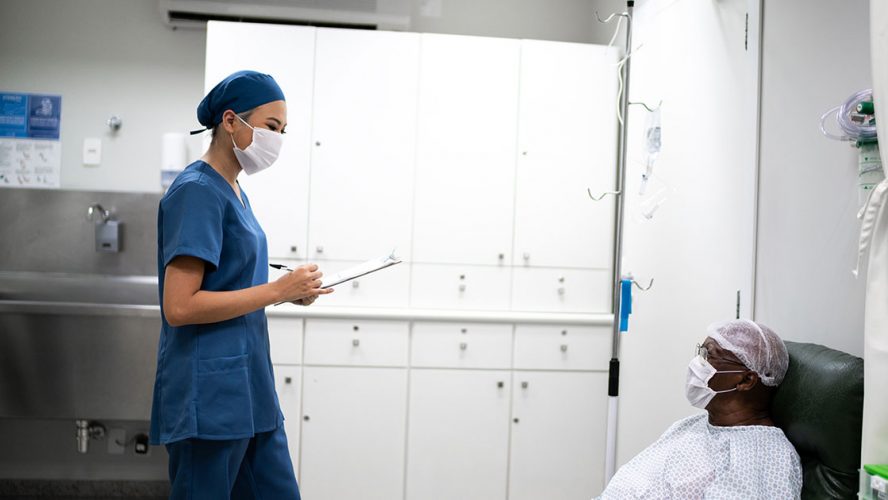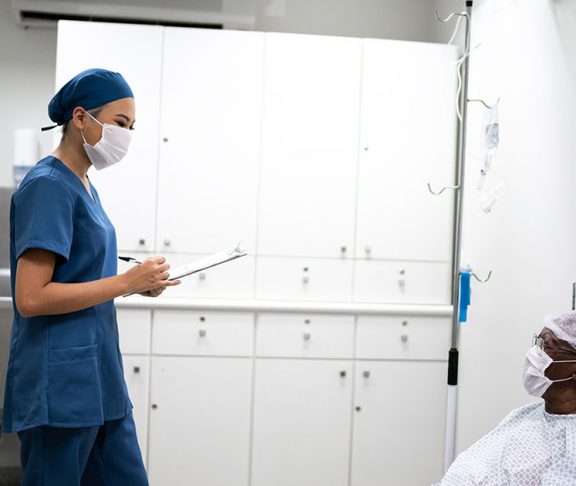The saying goes that crisis breeds innovation. One needs to look no further than the COVID-19 pandemic, which continues to upend nearly every aspect of daily life, to know the statement holds true.

Everett E. Vokes, M.D., FASCO
President, American Society of Clinical Oncology
Indeed, the global disruption has already sparked remarkable innovation inside and outside of medicine. From record-speed vaccine development to the adoption of virtual workplaces, we’ve been innovating to adapt to our new normal.
While the COVID-19 pandemic has laid bare the inequities that exist in our global healthcare systems, it’s also provided us an opportunity to reinvent and test promising approaches to a more equitable future in healthcare. For cancer care, it’s time we harness and expand the long-term impact of innovations we’ve seen since the COVID-19 pandemic began that could benefit patients worldwide.
The potential of telemedicine
Innovation can bring down barriers to access and make cancer care more equitable, convenient, and efficient for patients worldwide. Before the COVID-19 pandemic, telemedicine applications were rarely used in the oncology field in the United States.
Over the past year, because of the need to minimize interactions and travel, rapid adoption of a broad range of digital healthcare activities and services in the U.S. healthcare system occurred. In fact, research from my own organization, the American Society of Clinical Oncology, found that the use of telemedicine in oncology increased sharply during the pandemic. The potential of telemedicine is very clear. It can allow us to reach people anywhere in the world, including in both urban and rural areas.
Improved patient outcomes
Telemedicine’s potential to increase access to care is further strengthened by the possibility that it can be used to improve patient outcomes. We know that survival rates improve dramatically when cancer is diagnosed early. In the most remote parts of the United States and in resource-constrained countries, where there aren’t as many cancer specialists available, providing anyone — particularly the most vulnerable populations — with access to diagnostic services such as radiology and pathology can alter the trajectory of the disease and lead to better outcomes.
The use of liquid biopsies and blood-based biomarkers in screening and diagnosis, as well as the use of artificial intelligence and remote analysis in cancer diagnostics, have gained momentum over the past year. I think, in time, this technology will allow sophisticated algorithms to quickly interpret tissue specimens and perhaps replace genomic evaluations.
The pandemic has transformed not only how cancer care is delivered, but also how cancer research is conducted. The cancer research enterprise must sustain and build on the regulatory flexibility and virtual approaches sparked by COVID-19. The pandemic forced many clinical trials to pause for a short period of time, but with clinical trial enrollment rebounding, the clinical trial infrastructure responded in kind with more flexibility as to how the research could be conducted.
Simple things like using online platforms to consent to participation or lengthening the amount of time between doctors’ visits and allowing laboratory and diagnostic tests to be performed close to where a patient lives rather than at remote large centers have been shown to be feasible and need to be maintained and expanded further. Oncologists are also monitoring patient symptoms through apps and digital platforms. Real-time reporting by patients means no waiting for a doctor’s visit to have a concern addressed.
As we work to fight COVID-19 globally with an eye toward returning to normalcy, let’s not lose the momentum to continue to innovate. Together, as a global cancer care community, we must embrace this opportunity to uncover fresh solutions and make bold bets that fundamentally improve the lives of all touched by cancer, leading us toward a future of equity in cancer care.

